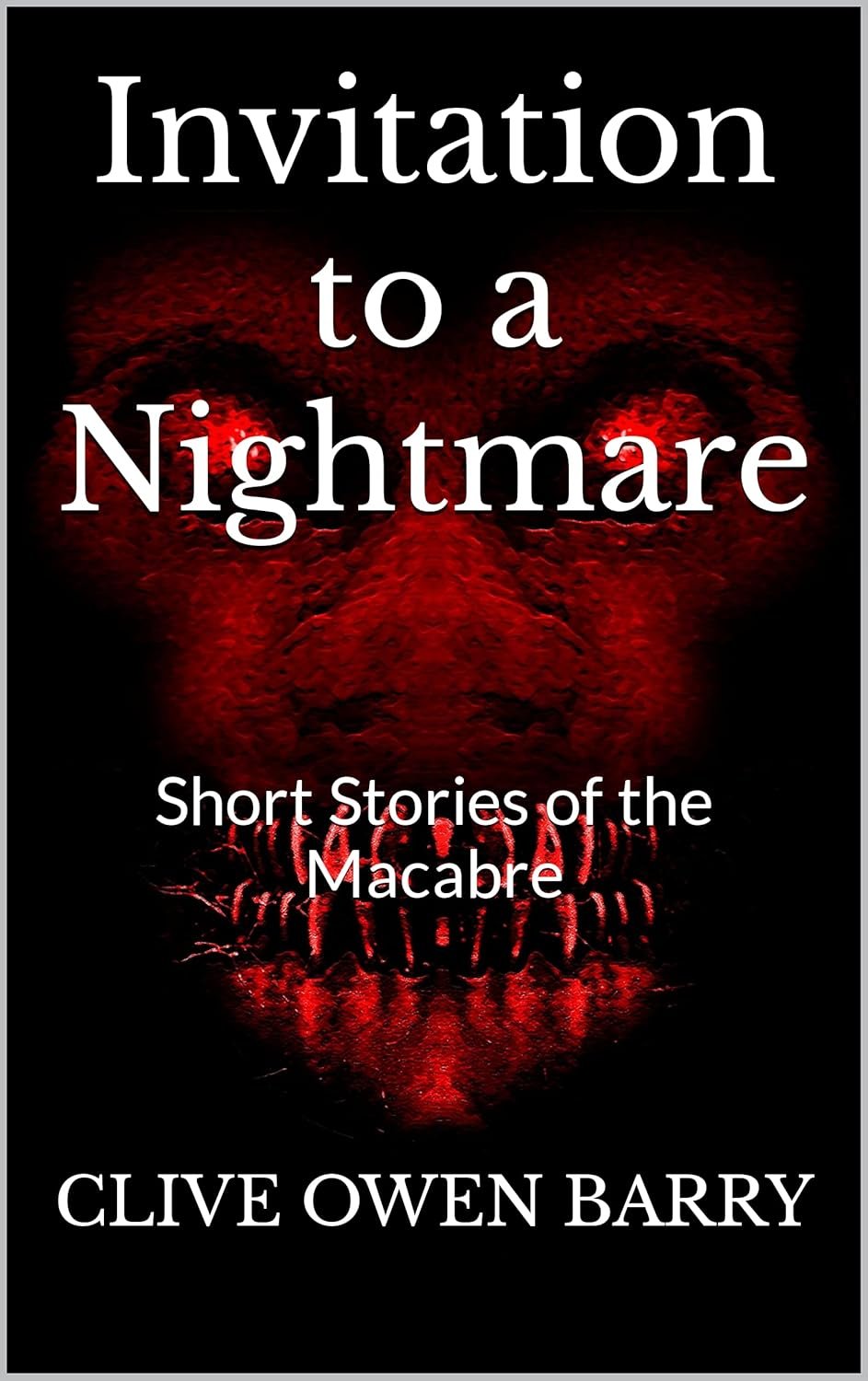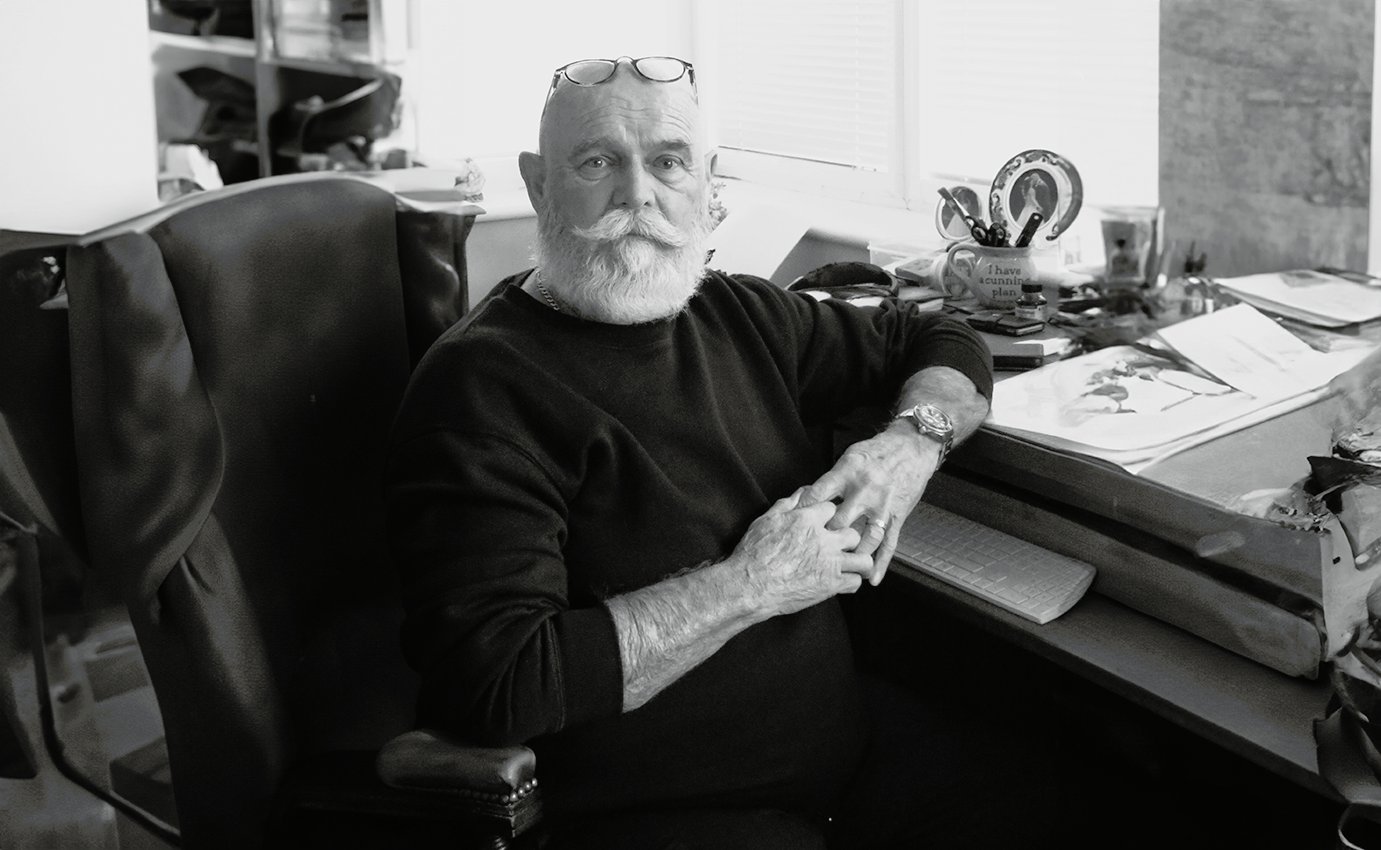A Journey Through Imagination, Inspiration, And Diverse Genres
Clive Owen Barry discusses his transition from industry to writing, the inspirations behind his characters, his global influences, and his passion for exploring diverse genres in this insightful and inspiring interview.
Clive Owen Barry stands as a beacon of literary brilliance, a storyteller whose versatility and imagination have earned him a place among Britain’s most celebrated authors. From the enchanting escapades of “Granule Speck and the Ichkin” to the chilling whispers of his supernatural tales, Barry’s works traverse a spectrum of genres with an artistry that captivates readers of all ages. His ability to breathe life into characters and craft worlds that linger in the mind long after the final page is a testament to his boundless creativity and profound understanding of the human experience.
Born in Scarborough and shaped by a life rich in travel and cultural encounters, Barry’s writing is infused with a rare authenticity. His career in the petrochemical and marine industries not only took him across continents but also brought him into contact with people from all walks of life, whose stories and struggles have subtly woven themselves into his narratives. Whether it’s the nostalgic charm of the Daring Forest, inspired by his childhood in rural Canada, or the gritty realism of his adult fiction, Barry’s works reflect a life lived with curiosity, empathy, and a deep appreciation for the world’s diversity.
In this exclusive interview, Barry shares the journey that led him from shipbuilding apprentice to award-winning author, the inspirations behind his unforgettable characters, and his thoughts on the art of storytelling across genres. Prepare to be inspired by the wit, wisdom, and creative spirit of a writer who continues to push the boundaries of imagination.
“Clive Owen Barry is a literary virtuoso whose storytelling brilliance and genre-spanning creativity continue to captivate readers worldwide.“
Editor, Reader’s House
What inspired you to transition from a career in the petrochemical and marine industries to writing and art?
I retired in 2016 on medical grounds, from an occupation I not only thoroughly enjoyed but one by which I was pretty well regarded.
Part of my remit during that period was to produce concise written reports and in the early ninety’s, was fortunate in having several laborious technical papers published, some of which would put the most avid insomniac into a deep state of slumber long before reaching the second page.
Based on that, and a desire to keep mind and body active, I decided to author a children’s book (Granule Speck and the Ichkin), believing this the easier alternative to that of a long novel. How naive could I possibly have been?
Writing for a mature audience requires few restrictions, whilst a more youthful audience, means accepting the responsibility of restraint and censorship, whilst feeding an innocent enthusiasm for action and adventure
I look to drawing portraits as a means of encouraging my imagination, whilst still allowing for artistic creation. I find this a more beneficial therapy against writers block than alcohol. Either can cause my writing to take second place, however portraiture is the far safer option, as it prevents me from having to correct and re-write everything the following morning.
“Writing for a mature audience requires few restrictions, whilst a more youthful audience means accepting the responsibility of restraint and censorship.”“
– Clive Owen Barry
How has your experience of living in both Canada and England influenced your storytelling and creative process?
I’m a member of that archaic community, described in the modern media as ‘Baby Boomers’ and as such, a relic of a world which no longer exists. Both Canada and England during the Fifties and Sixties were countries where good manners and simple common courtesy prevailed. With the exception of my two adult novels whereby violence, both physical and verbal play major roles, I try to bring some element of that long lost integrity into my work.
Can you share the inspiration behind the character of Granule Speck and the world of the Daring Forest?
My Great Grandfather was a local handyman and for the price of a few coppers would mend and make repairs about your house. As a young child I would spend a great proportion of my time with him in his workshop and riding aboard his old wooden barrow, as he pulled it through the then cobbled streets of Middlesbrough. Granule Speck is based in part on Great Grandads ability to make something out of nothing, whilst at the same time possessing a calm civility and bottomless pit of ancient wisdom.
The Daring Forest was my own back yard in rural Canada, where I spent hot summers camping and splashing about in woodland streams and cold winters tobogganing down the many snow covered slopes.
What draws you to write in such diverse genres, from dark horror to fantasy and gritty adult novels?
Boredom! Once I’ve completed a project, I need to take a break from that genre. I may return later, as I did with Granule’s second book but I need to create something diverse in between.
I became involved in the spooky stuff after being invited by a literary magazine to write a supernatural Dickensian short story. That story (‘Whispers’) was readily accepted and I was further invited by the editor to submit a ghost story (‘The Spirit of Love’) also accepted. Because of the success of those stories, I wrote several others in the horror genre, some of which have also been accepted by various publications.
How do your travels and interactions with people from different cultures influence the characters and themes in your books?
I have been fortunate in my working life to have travelled the world. I have sailed aboard vessels of every nationality. I have dined at the table of Captains and sat about the campfire of Bedouins in the Egyptian desert, with no common language, yet a mutual understanding between us.
There is a period of time, somewhere between three and five in the morning, when after a long day your mind wants to shut down. In the silence of night, men who work close together will open up about their life and loved ones. They will talk readily of needing a new car part, or the extortionate price of kids school shoe’s. Religion, politics, sport, it doesn’t matter, every working man regardless his background, faith or race is the same, we all have comparable thoughts.
Listening to those many men over the years and hearing their stories, is when the character of a single individual stays with you and whether you acknowledge it at the time, you somehow draw on fragments of those personal experiences, into your own writing.
What advice would you give to aspiring writers who want to explore multiple genres in their work?
Just go for it. Write about everything. You may be fortunate in the ability to stick with one genre and draw on your experience and knowledge from one story to the next, though with multiple genres you are always going to learn and be in constant need to research and explore. For me this was the better option as I am continuously looking for new topics, however this does not suit everyone. Simply consider what J.K. accomplished with Harry and friends and how many wonderful books followed, all based on those same characters. My enjoyment is from creating those characters.
EDITOR’S CHOICE
Gripping, chilling, and masterfully written—Barry’s collection of macabre tales delivers suspense, terror, and unforgettable nightmares. A must-read for horror enthusiasts!



